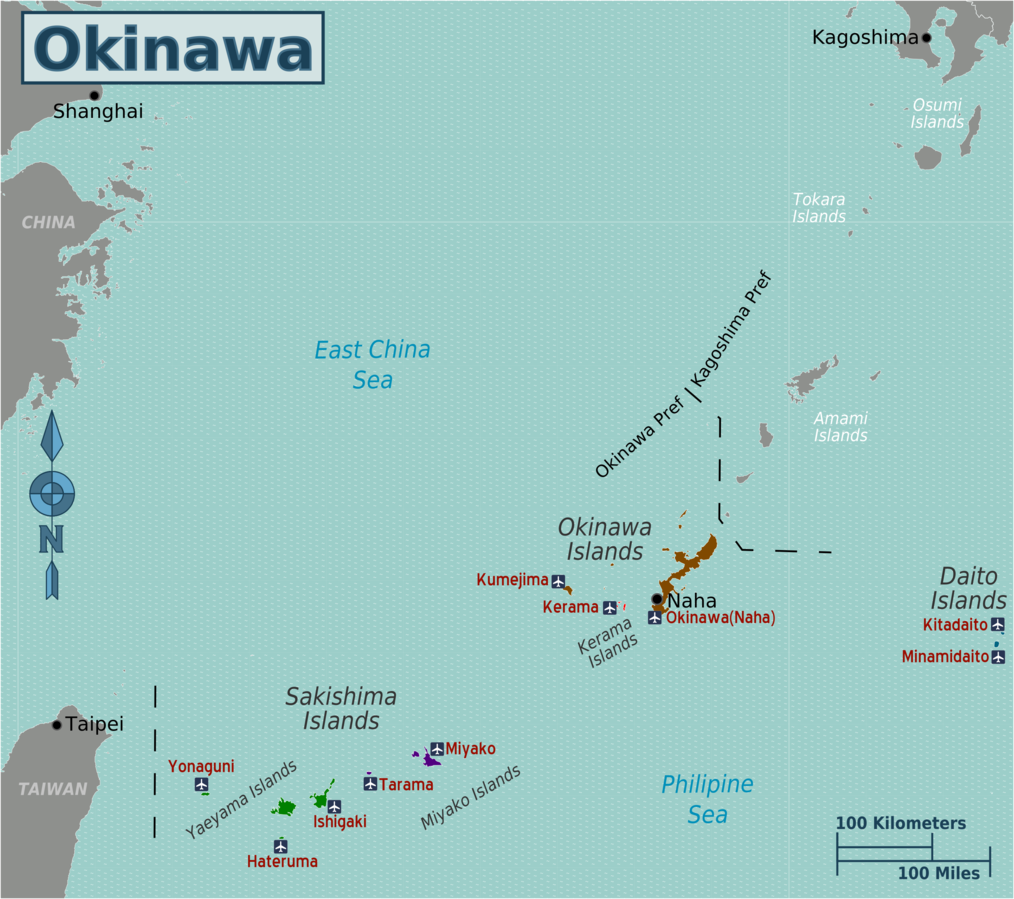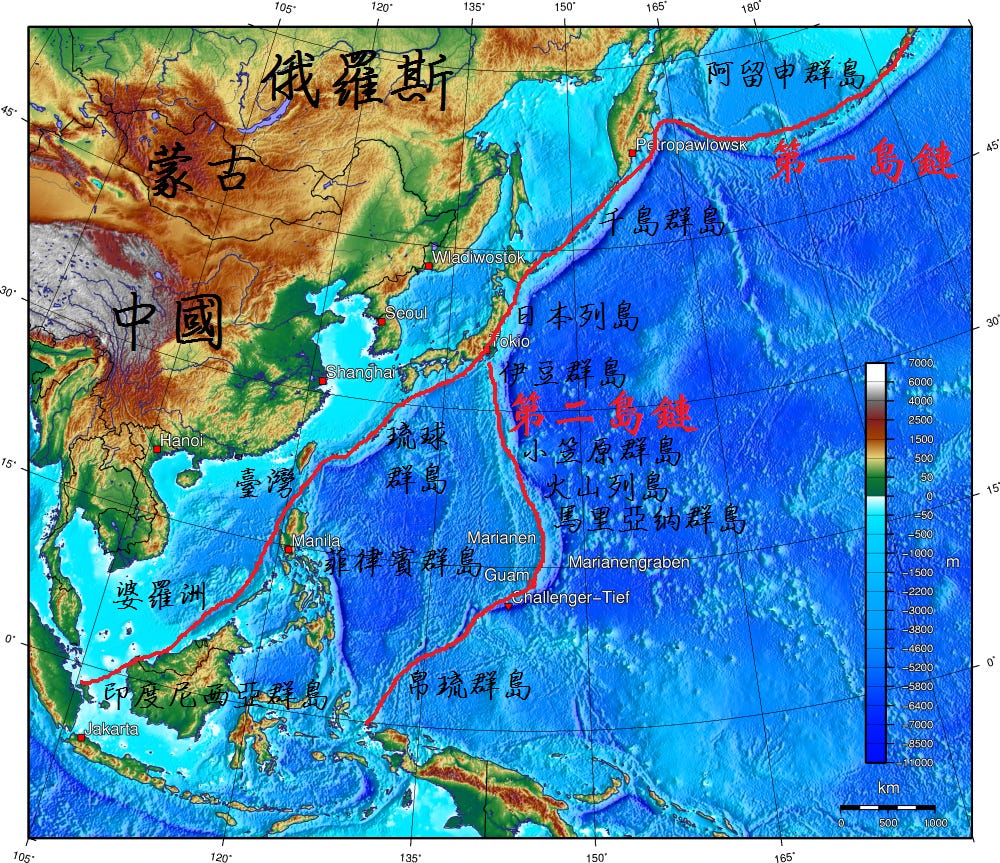Okinawa: A Geopolitical Trap of the Mind
Okinawans are not free to think for their own interests independent of the Japanese, Chinese, and American geostrategic interests.

History is a misfortune that happens en masse to whole peoples - usually due to forces outside their control.
This is no less the case regarding the geostrategic outcomes of stateless nations. I'm frequently struck by how many instances there are of independence movements that are stuck between the national and international interests of foreign actors. In these cases, the movement(s) can't get the space to determine their own interests, free of such broader geopolitical considerations.
Okinawa presents one such case.
Note: While the Amani Islands are administered within the Kagoshima Prefecture, they are part of the historical Ryukyu islands territory.
Between the interests of Tokyo, Beijing, and Washington, Okinawa can't catch a break.
Independent until 1609, the Ryukyu Islands were not formally annexed by Japan until the 1870s. Active attempts at assimilation began in earnest in the 1930s, during Japan's fascist period. Following the Second World War, the United States returned all of the islands to Japan while maintaining several military installations on Okinawa.
These bases lay at the crux of today's geopolitical problems.
Japan and the united states view Okinawa as critical to defense against a potentially revisionist China should they ever attempt to assert naval authority beyond the first island chain.
China is well aware of this and, in recent decades, has tailored its propaganda to mimic Okinawan separatist rhetoric.
There has been much hostility toward the U.S. bases on Okinawa over the years due to a wide range of issues. Grievances include the dispossession of farmers at the establishment of the bases to waves of rapes and murders perpetrated by U.S. servicemen.
Ultimately, however, residents of the Ryukyu islands and Okinawans, in particular, have little say in all of this, independent from the role that this regional rivalry places them in. This situation may grow all the more intense should China make a play for Taiwan at any point soon. There is likely no real hope for an independent Okinawa in the near term. The truly unfortunate part of it, however, is that Okinawans are not even free to think for their own interests independent of interests formulated in such far-flung cities as Tokyo, Beijing, and Washington.





